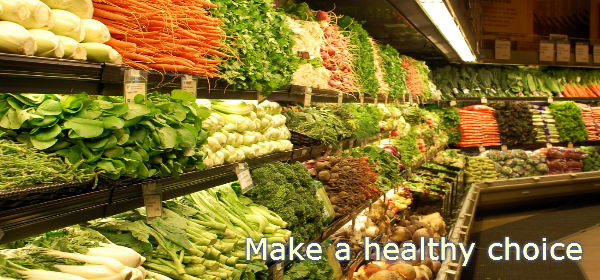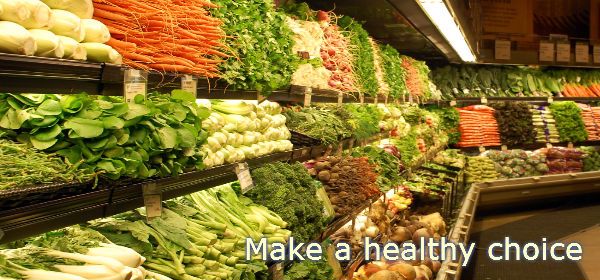Mindful Shopping, Healthier Eating
 Did you know that the average person makes 2.2 trips to the grocery store each week? Did you realize that there are nearly 39,000 products in a typical supermarket? No wonder it’s easy to get lost in the aisles! The food industry definitely does not make it easy to be a smart consumer, let alone a health-conscious one. Get tips from holistic health coach Tracie Inman in this article and at her upcoming classes at the library.
Did you know that the average person makes 2.2 trips to the grocery store each week? Did you realize that there are nearly 39,000 products in a typical supermarket? No wonder it’s easy to get lost in the aisles! The food industry definitely does not make it easy to be a smart consumer, let alone a health-conscious one. Get tips from holistic health coach Tracie Inman in this article and at her upcoming classes at the library.Make Gradual Changes
So where does a person start when wanting to make gradual changes to improve his or her eating habits? It’s not uncommon to be told to shop the perimeter of the grocery store and to stay out of the middle, but Tracie shakes up that notion a bit by suggesting that you shop the produce department extensively then from there get really selective in the products you buy. This area of the store has the least number of labels because whole, real foods don’t need them.
Let’s face it: we all know what an apple is, and an apple has just one ingredient which is “apple.” Organics are best because they aren’t sprayed with pesticides and chemicals like non-organics are, but starting out, it’s important to just start eating more of the real foods you’ll find in this area of the store before buying the packaged and generally less-nutritious items found in the center aisles.
Avoid Distractions
When shopping the rest of the store perimeter as well as the middle aisles, stay mindful of what you’re actually shopping for and where it is so you aren’t distracted by the foods you don’t want. Most big-name grocery stores have a health food section these days. Make friends with it. Learn what’s in these aisles then compare the labels to the same foods found in other parts of the store. Although some of the more healthy choices can be found within these aisles, not all choices are as healthy as they seem.
Learning to read labels is an important part of knowing exactly what you’re getting when you’re at the grocery store, but that’s not enough. You should also learn what the health claims and other information mean.
- Do you know the difference between organic and 100% organic?
- Do you understand what a GMO is and why some foods proudly display that they’re GMO-free?
- Is All Natural really “all natural”?
- What is gluten and are gluten-free products healthier for you?
Books and Classes to Help
In addition to learning to read labels and how to navigate the grocery store, take advantage of the local farmers’ markets which are active in Topeka for much of the year. This is something also suggested by Michael Pollen in his book, “Food Rules: An Eater’s Manual.” Check it out for other suggestions on how to eat healthier.
Another way is to join Tracie Inman on Thursday, October 11 from 7-8 p.m. or on Friday, October 19 from 11 a.m. until noon for Mindful Grocery Shopping, Healthy Eating, hosted by the Health Information Neighborhood at the Topeka & Shawnee County Public Library. She’ll help you unravel some of the mysteries of healthy supermarket shopping so that you feel confident in the foods you serve yourself and your family.
 Tracie Inman, holistic health coach and owner of Mindful Life Experience in Topeka, KS, is passionate when it comes to educating others about the mind-body-food-environment connection. As a Real Food & Wellness Advocate, she specializes in weight loss and plant-based food education. She equips her clients with the information and tools they need to make mindful decisions about their health, their lifestyles, and what they put into their bodies. Additionally, she speaks to groups on various health and food-related topics.
Tracie Inman, holistic health coach and owner of Mindful Life Experience in Topeka, KS, is passionate when it comes to educating others about the mind-body-food-environment connection. As a Real Food & Wellness Advocate, she specializes in weight loss and plant-based food education. She equips her clients with the information and tools they need to make mindful decisions about their health, their lifestyles, and what they put into their bodies. Additionally, she speaks to groups on various health and food-related topics.
Photo credit














